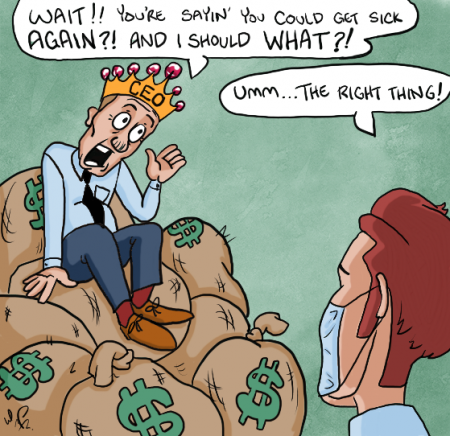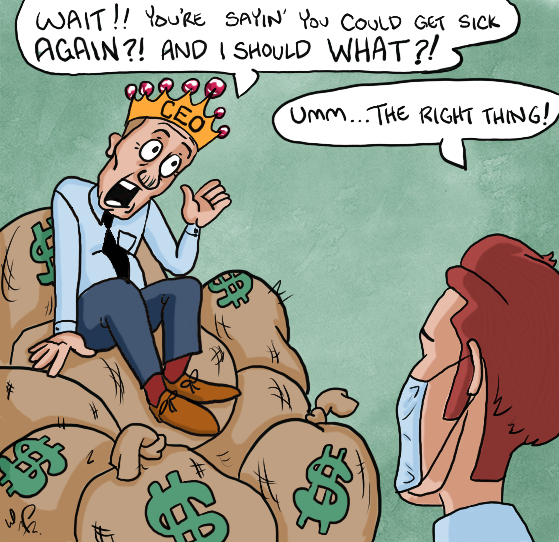| Editorial |
|---|

When COVID-19 struck the U.S., it made sense to enact measures to provide paid sick leave, and this national emergency highlights the need to keep this policy permanently intact.
A pandemic affecting the entire world has paved the way for a giant stimulus package providing social safety nets to U.S. citizens and businesses to help cope with the huge economic losses all Americans are facing.
The COVID-19 virus has infected over 187,000 U.S. citizens and resulted in more than 3,600 deaths according to the Centers for Disease Control and Prevention. Many more are predicted to get sick through community transmissions and poor social distancing practices.
With so many people being quarantined, paid sick leave is needed in this crisis.
But flattening the curve requires Americans to go beyond social distancing. The need to stay home to shelter in place means sick and quarantined people need to keep away from their workplaces.
President Donald Trump put forth emergency legislation March 21 called the Family First Coronavirus Response Act to provide for paid sick leave through the end of the year.
It is a start to helping alleviate this major strain for working Americans.
Unfortunately, it excludes coverage for workers in small businesses of less than 50 employees, and larger businesses that are assumed to have paid sick leave benefits in place already.
No one can predict when this pandemic will fully subside and when the American social life and the economy can carry on. But when it does, the paid sick leave benefits will disappear with it.
All employed Americans should be given paid sick leave, subsidized by the government if necessary, beyond the COVID-19 pandemic. This social safety net can benefit all in protecting sick workers and the people they come in contact with.
Without paid sick leave, employees are more likely to go into work when they are sick instead of taking time to heal and preventing the spread of more germs and disease.
If a person travels for business while ill, the ability to carry contagious germs multiplies through air travel. Workers in the retail and service industries can and do come in contact with hundreds of customers a day. This is especially hazardous to public health if these sick workers are in food service.
For many workers, not being able to work means not being able to earn a paycheck. With so many Americans being employed as hourly and contract workers, they need additional measures in place to prepare for when sickness strikes.
Benefits like paid sick leave are rarely offered to this category of workers. This reality is apparent now when so many Americans have now become sick in large numbers.
Many of the same workers who do not have guaranteed paid sick leave in the absence of the coronavirus legislation also lack health care. All of these obstacles add up to a lot of out-of-pocket expenses, and without paid sick leave, there may be nothing in one’s pocket to begin with.
The passing of the coronavirus stimulus package, totaling $2 trillion, shows where society’s values lie right now in the wake of the health crisis – protecting the wages of sick workers.
It’s a value many other industrialized nations in the world share, as many other governments around the world already have paid sick leave in place for working citizens.
Although the price tag on this program is steep, in the future, this benefit is worth considering fitting into the budget. Making this a long-term plan can go a long way to protecting all working citizens during times of illness.
The rapid spread of the virus and a high number of infected people brought this problem back into the spotlight. Still, even when this pandemic eventually subsides, periods of prolonged illness will continue to plague workers from time to time.
Guaranteed paid sick leave, regardless of employer benefits, is the way to ensure better health and safety for all workers.

